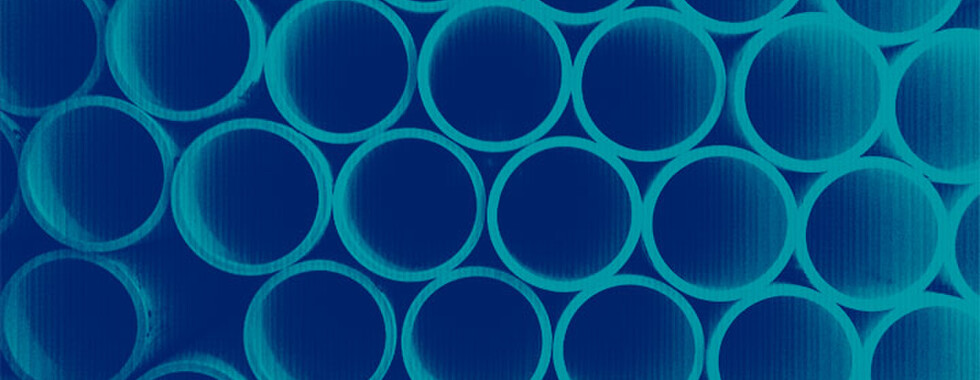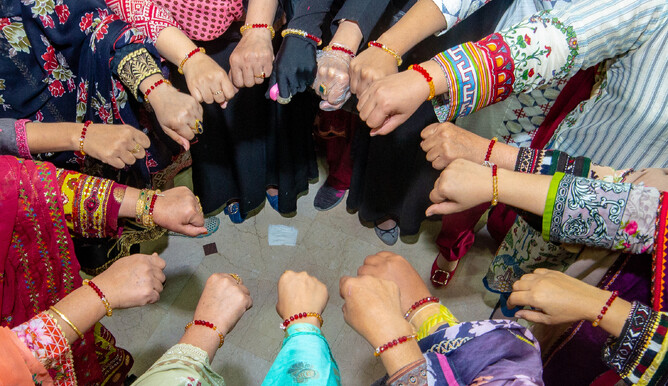It is well documented that one of the major barriers to development is gender inequality. What is less well documented are the female entrepreneurs working to create sustainable solutions to some of the world’s biggest problems in development.
These powerful advocates of equality in development can be seen across our partners and investees, so this month, we are celebrating the female change-makers in the waste & WASH (Water, Sanitation and Hygiene) sectors.
Across both sectors decision and policy making roles are traditionally dominated by men, as are many government positions relating to this sector. Involving women in key decisions across development sectors has been shown to create more gender inclusive policies and infrastructure (UNICEF 2017). We see this in action across a number of the programmes we support.
Solving the plastic pollution issue that East Africa faces is no easy feat. Entrepreneur Nzambi Matee founded, Gjenge Makers, a Social Enterprise working to actively lessens the plastic pollution burden through processing plastic waste into construction materials [1]. Nzambi designed the program to employ local people and particularly those from marginalised communities, to collect the plastic waste thereby creating domestic employment opportunities. The plastic is processed into bricks which are not only affordable but are far more durable than their traditional cement alternatives.
The Nature Conservancy (TNC), one of Water Unite’s partners, aims to tackle gender inequality within development sectors as part of its business model, which includes a high female employment rate internally [2]. TNC helped create The Greater Cape Town Water Fund, which focuses on raising funds for and preserving the ecological health of water systems in Cape Town, following a major water shortage between 2015 and 2018. The Greater Cape Town Water Fund trained a team of 11 local women in a pilot program to clear invasive Australian acacias in the Atlantis Aquifer. The team started on the main recharge area before the winter season to make sure that recharge is optimized when the rains arrive. Every day, the team cuts several piles of trees in a race to minimize the loss of water in the recharge area.
Other examples of brilliant female change agents can be found in the work of Sanitation 4 Millions (S4M), implemented by GIZ [3]. By improving access to sustainable sanitation and hygiene in schools, mosques and public spaces in multiple countries across Asia, South America and Africa, S4M is fighting for gender equality. Women, children and vulnerable groups are provided with safe access to sanitation services, so that women and children can stay in school or education and feel secure in public spaces. So far Sanitation for Millions has trained more than 1500 trainers to promote menstrual health and hygiene. In addition to this, menstrual awareness and hygiene campaigns have reached over 50,000 girls and over 650,000 people have access to safe sanitation services, 52% of which are women.
Aside from gender equality being considered a human rights issue, investing in women in development gives many companies and enterprises a financial edge. Businesses with high female employment rates are 15% more likely to have higher net earnings than similar businesses who don’t invest in women [5]. Further to this, it has been estimated that in some cases, companies which retain more women in executive committees can achieve a return of up to 47% on equity [6]. Through investing in women as both talent in development and consumers, potential markets for current businesses could be expanded which may lead to an increase in revenue, giving those businesses a competitive advantage [7]. Clearly, investing in women not only leads to strong financial models and innovations, but just makes good business sense.
References
[1] Atlas of the Future. 2021. Recycled plastic bricks stronger than concrete | Atlas of the future. [online] Available at: https://atlasofthefuture.org/p...
[2] The Nature Conservancy. 2021. [online] Available at: https://www.nature.org/en-us/
[3] GIZ 2021. Improving access to sustainable sanitation and hygiene. [online] Available at: https://www.giz.de/en/worldwid...
[4] UNICEF, 2017. Gender-Responsive Water, Sanitation and Hygiene: Key elements for effective WASH programming. [online] New York: UNICEF. Available at: https://www.unicef.org/gender/files/Gender_Responsive_WASH.pdf
[5] Vivian Hunt, Dennis Layton, and Sara Prince. Why diversity matters. McKinsey & Company, 2015, http://www.mckinsey.com/business-functions/organization/our-insights/why-diversity-matters 3
[6] The Global Gender Gap Index 2015. World Economic Forum, 2015 http://www3.weforum.org/docs/GGGR2015/The%20Global%20Gender%20Gap%20Index%202015.pdf
[7] Deloitte, 2011. https://www2.deloitte.com/content/dam/Deloitte/ru/Documents/public-sector/gender-dividend-en.pdf. [online] Global Public Sector. Available at: https://www2.deloitte.com/content/dam/Deloitte/ru/Documents/public-sector/gender-dividend-en.pdf.

